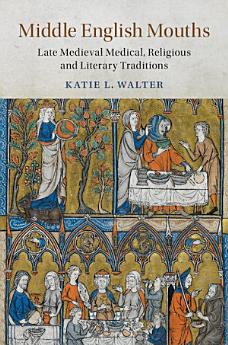Middle English Mouths: Late Medieval Medical, Religious and Literary Traditions
Katie L. Walter
Jun 2018 · Cambridge Studies in Medieval Literature Book 105 · Cambridge University Press
Ebook
273
Pages
reportRatings and reviews aren’t verified Learn More
About this ebook
The mouth, responsible for both physical and spiritual functions - eating, drinking, breathing, praying and confessing - was of immediate importance to medieval thinking about the nature of the human being. Where scholars have traditionally focused on the mouth's grotesque excesses, Katie L. Walter argues for the recuperation of its material 'everyday' aspect. Walter's original study draws on two rich archives: one comprising Middle English theology (Langland, Julian of Norwich, Lydgate, Chaucer) and pastoral writings; the other broadly medical and surgical, including learned encyclopaedias and vernacular translations and treatises. Challenging several critical orthodoxies about the centrality of sight, the hierarchy of the senses and the separation of religious from medical discourses, the book reveals the centrality of the mouth, taste and touch to human modes of knowing and to Christian identity.
About the author
Katie L. Walter is Senior Lecturer in Medieval English Literature at the University of Sussex. She is the editor of Reading Skin in Medieval Literature and Culture (2013), The Culture of Inquisition in Medieval England (with Mary Flannery, 2013), and a special issue of Textual Practice on 'Prosthesis in Medieval and Early Modern Culture' (with Chloe Porter and Margaret Healy, 2016). Dr Walter has published essays on the body, skin, flesh and the senses, as well as on medieval literary theories and reading practices.
Rate this ebook
Tell us what you think.
Reading information
Smartphones and tablets
Install the Google Play Books app for Android and iPad/iPhone. It syncs automatically with your account and allows you to read online or offline wherever you are.
Laptops and computers
You can listen to audiobooks purchased on Google Play using your computer's web browser.
eReaders and other devices
To read on e-ink devices like Kobo eReaders, you'll need to download a file and transfer it to your device. Follow the detailed Help Center instructions to transfer the files to supported eReaders.







